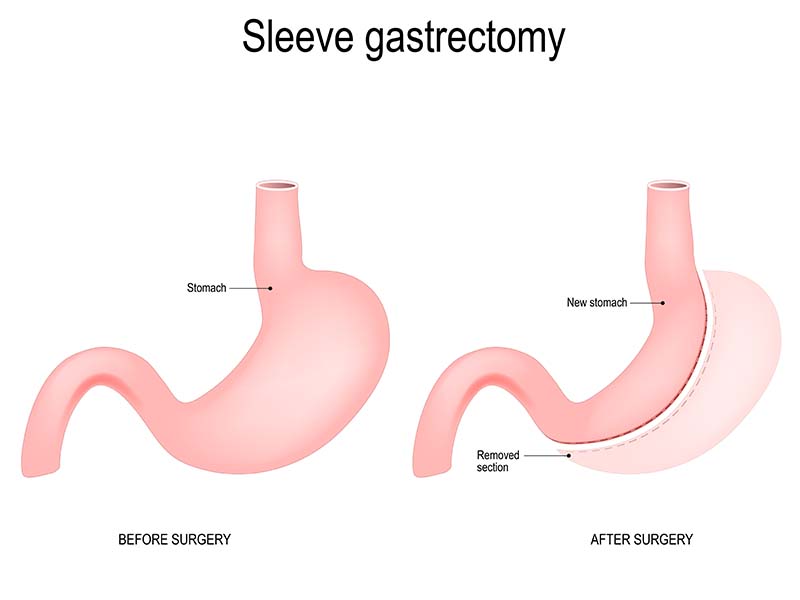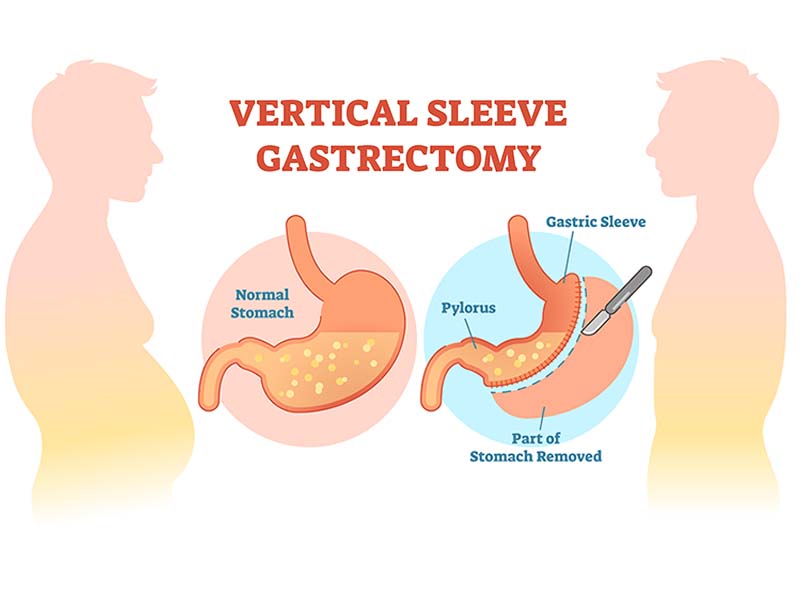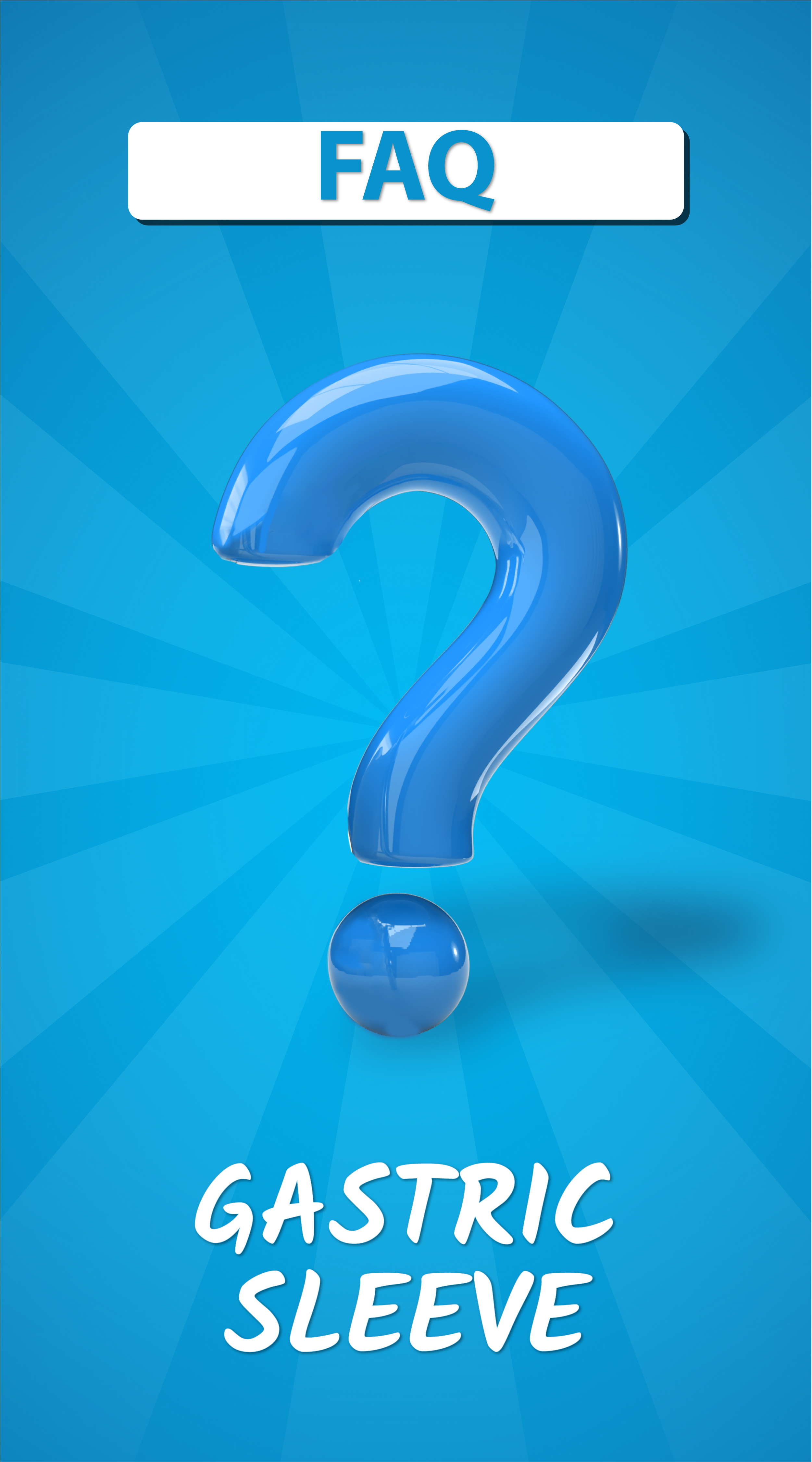Gastric sleeve surgery, or sleeve gastrectomy, is a surgery for weight loss that involves removal of a large part of your stomach. However, the functions of the stomach do not change. Sleeve gastrectomy can be performed either in an open surgery, which involves a large incision, or laparoscopically, which means that small incisions are made in the abdomen to insert a small camera and the surgical instruments. With this surgery, you will feel full after eating a small amount of food due to the change of your stomach size. You might also feel less hungry because your smaller stomach will produce lower levels of a hormone called ghrelin, which causes hunger.
Reported
weight loss for this procedure ranges from 60% of the excess weight to
%90; better results are obtained with good adherence to dietary and behavioural
guidelines. The long-term
success of the surgery depends on your compliance with the advised nutritional
rules. With
smart food choices, regular exercise and good eating habits, patients who have
had a sleeve gastrectomy will enjoy and maintain ideal results and ideal
figure. Such an approach increases weight loss and prevents weight
regain.



-0215.jpg)